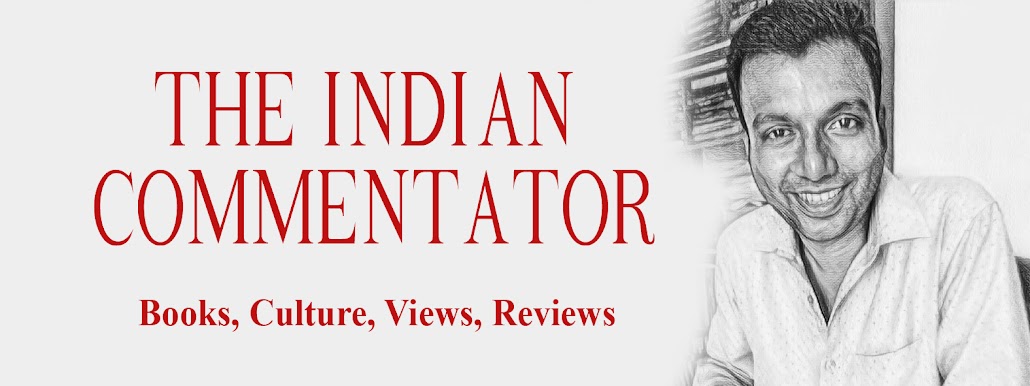“To believe in miracles one has to be a realist”-- Raksha Bharadia (Chicken Soup for the Indian Soul: A book of Miracles.)
When you stand beside the railings of the bridge holding tight with both your hands on the rail, preventing your vertigo to embrace you totally, with your eyes set deep and tilted upon the transient waves in the running river below, the wind that brushes your shoulders would appear more like an individual. And you would like to name him/her—hope, consolation, or simply magic. The greatest miracle of all is this feeling, that even in the inanimate world, your despair is heard, and you are not alone anymore.
This review is a part of the Book Reviews Program at BlogAdda.com. Participate now to get free books!
 |
| Image Courtesy: Google |
Even if it is signs from above, the healing power of a prayer, love from beyond, his/her messenger, His saving grace, angels amongst us, answered prayers, everyday miracles, divine appointment, the magic of faith, our guardian angel, or call from within, the truth about experiencing these inexplicable moments is the irreplaceable craving for being loved and cared for. Even if the source of this love, is hidden from the eyes, and covered from the rationality of our brains, we all still long for that invisible, irrational touch. Signs from Above, The Healing Power of a Prayer, Love from Beyond, His/her Messenger, His Saving Grace, Angels Amongst Us, Answered Prayers, Everyday Miracles, Divine Appointment, The Magic of Faith, Our Guardian Angel, and Call from Within, are the twelve sections of the Chicken Soup for the Indian Soul: A book of Miracles, with each title sheltering stories with a theme well explained by the title of each section.
Jack Canfield and Mark Victor Hansen, the New York Time bestselling co-authors and Raksha Bharadia, the editor of best selling Chicken Soup titles in India
The book belongs to the self help/ inspirational category, which it justifies without compromise. Each of the anecdotes in the book carries a fresh reading experience, especially due to the layman touch they offer to the art of writing. And of course, the origins of these anecdotes are from people who are from different professional, cultural and economic background. “These are mystifying accounts of moments when people have gained a ‘direct knowledge’ without any reasoning. It can be defined as the ability to ‘see within’, or a way of knowing and sensing the truth without any explanation,” says Raksha Bharadia in her brilliant Introduction.
 |
| Raksha Bharadia |
“Miracles of the Heart”, an anecdote by Sangeetha Narayanan, in the section The Healing Power of a Prayer, will surely bless you with a twinkle in the corner of your eye. Tears are nothing to be prevented when you are with this book. I thought about the reason behind the teardrops that traced silver lines over my cheeks, and ended up knowing this: there is someone out there, who wrote it, who knew the world and its other side, the side we never meet in our mundane reality, the side of miracles, the side we once knew existed.
Fictional or true, the stories are touching and you would find yourself closely communicating with the experience discussed in each of them. Chicken Soup for the Indian Soul: A book of Miracles is a collection of anecdotes by various people and at the same time, due to the same reason, slips from perfection. Structurally, the stories carry a laymen chromosome in most of them, except the ones contributed by professional writers. This at the same time adds to the freshness of the book, and creates an imbalance in the craft the book or any book for that matter, holds in the foreground.
 |
| Courtesy: Google Images |
As a self help book, Chicken Soup for the Indian Soul: A book of Miracles inspires. Among the assortment of self help guides Chicken Soup stands different in its polyphonic voices unique to the Indian cultural scene, in the impact it creates as well as in approach. The book shares experiences from different people, rather than limiting itself to the convictions of a single authorial voice. It’s a sure buy with Rs: 295 and fine read, published by Westland
This review is a part of the Book Reviews Program at BlogAdda.com. Participate now to get free books!












